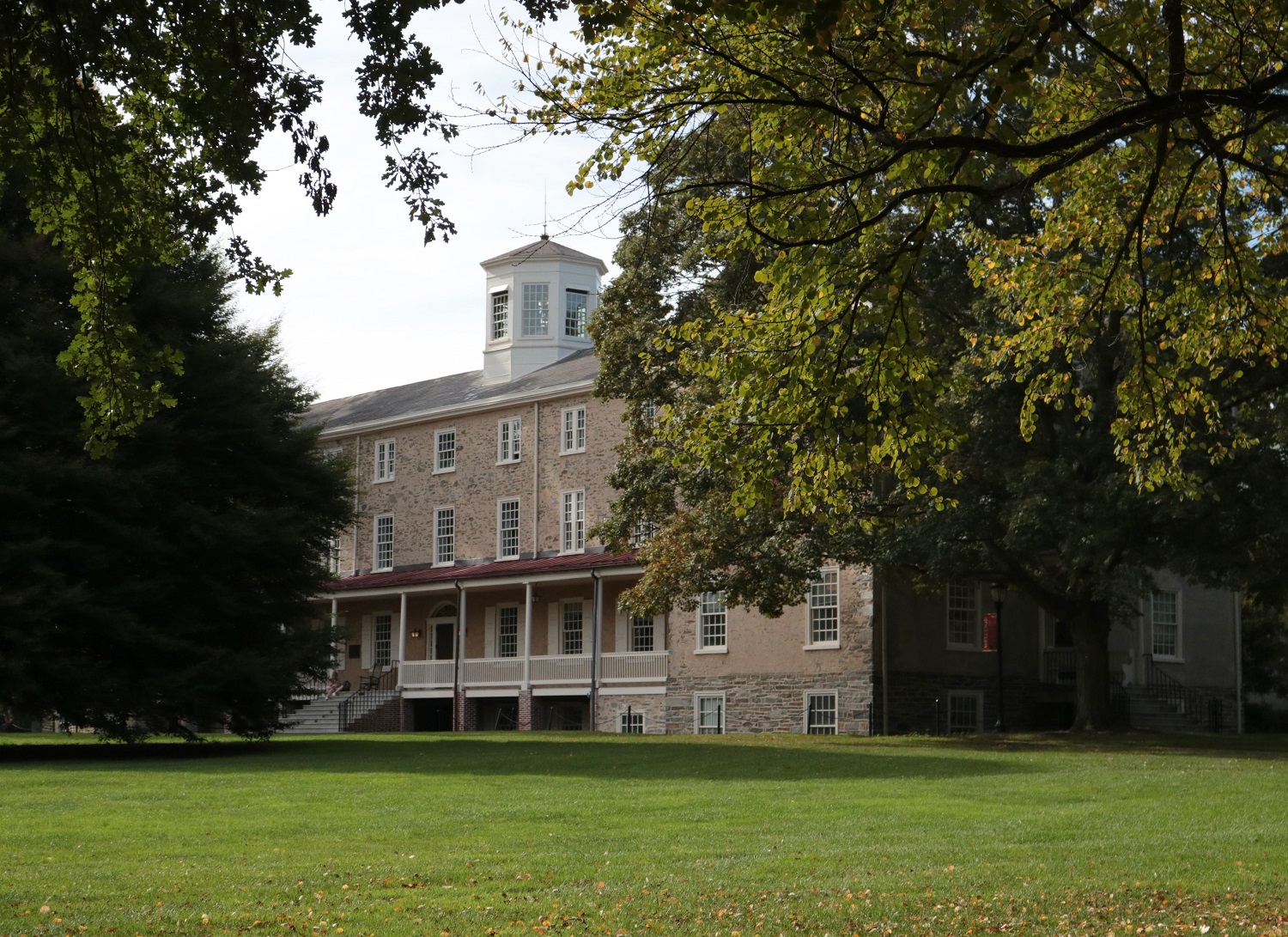
This is part III of a four-part story written by Haverford resident, Nancy Warren. A study of history uncovers the role a home near Haverford College and Haverford Meeting (Buck Lane) played before and after WWII. Originally owned by a conservative editor of the Saturday Evening Post, it ultimately served as an important Quaker boarding house that sheltered World War II refugees for American Friends Service Committee (AFSC). Many became professors at nearby colleges, like Haverford and Bryn Mawr.
PART 3
By Nancy S. Warren
In the 1920’ and 30’s the sunny, generously proportioned house at 824 Buck Lane was owned by Frederick Bigelow, assistant editor of the conservative Saturday Evening Post. By 1940, Bigelow’s fortunes had reversed, and 824 Buck Lane was leased to the American Friends Service Committee (AFCS) via the Haverford Emergency Unit. In a gracious twist of fate, the house, once supported by the lucrative funds of a nationalist publication, would shelter immigrants– the very people the magazine had labored to exclude.
The goal of the Quaker run workshop at 824 Buck Lane, which accommodated about 25-30 refugees at a time, was to help people adjust psychologically, socially, spiritually, and most importantly, to help them find jobs. One, a dancer, got a teaching job; another, a botanist, worked at the Philadelphia Museum of Art; a school teacher began a study fellowship at Yale; a statistician got a job doing research; a biologist would study at Bryn Mawr College. Some refugees became well loved professors at Bryn Mawr, Haverford and Swarthmore Colleges. Of the 70 immigrants who lived here, all but a couple of them had secured employment before the Workshop closed in 1942.
In spite of the difficult circumstances, an exciting synergy existed between this fragmented group whose life’s work had been disrupted by the war. The refugees had plenty of time to socialize and take advantage of free lectures offered by Bryn Mawr and Haverford College. Attendance at Haverford Friends Meeting as well as 5 or 6 English classes a day were the only required activities in an otherwise relaxed atmosphere. The house was run communally; all of the residents chipped in with yard and housework. The tasks offered a therapeutic outlet and provided a camaraderie around chores.
Typical of Quaker organizations, the hostel was run on a frugal budget and depended on the surrounding community for support. Isherwood was the only full time English teacher on staff with 6 other administrators. Volunteer teachers from Haverford and Bryn Mawr College and the Baldwin School helped lighten the workload.
As stated in the 1942 Bryn Mawr College Yearbook: “ They (the refugees) are weaving a new pattern, learning and contributing. Silent observers, they listen to classes at Bryn Mawr and Haverford, learning our teaching methods. Students from both colleges have conferences with each refugee to correct his English pronunciation and enlarge his speaking vocabulary.”
Community members visited on Sunday evening to give lectures on topics like Municipal Government and Civil Liberties. Community also provided recreational and spiritual support. Haverford Meeting made a quilt for a couple who met at the hostel and were to be married. Piano, violin and singing resonated throughout; plays were put on; sometimes the little boy in one of the families here would take a girls’ part, just because that was what was needed or because Shakespeare’s influence was a happy commonality. Conversations started at breakfast before meeting or at dinner were continued while clearing the table and at the kitchen sink. The house was its own community and dependent on community effort.
I found the following paragraph in Jacob Picard, Meeting the Quakers,” in Jewish Frontier that really encapsulates the essence and the rationale behind the hostel for refugees:
“It was almost a foregone conclusion that the translator of Romain Rolland, himself the author of a well-known book, would converse with the story teller, who was the head dishwasher, about epical problems, while drying glasses. No one was astonished when the Russian Jewish philosopher, holding silver forks in his hand, defended certain sociological phenomena in Europe against the already Americanized viewpoint of a former (non-Jewish) assistant of one of the best German sociologists, who had to flee in 1938, because over there he had belonged to a secret anti-Nazi group and been very active; or that of a student of the philosopher Heidegger, carefully drying a frying pan, should deliver a quick lecture about an essay on Holderlin by his teacher. Meanwhile the once famous theater critic from Vienna recited an old folk song, very appropriate when peeling potatoes, and the former judicial counselor from Berlin talked about Indian philosophy and religion with an English poet.
Read the next and final installment when it is posted on July 17th
Nancy S. Warren, LMSW
May 2019